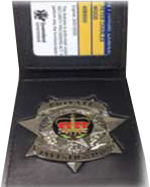12 Frequently Asked Questions About Process Serving
Investigations – Process Serving

12 Frequently Asked Questions About Process Serving
Key Essentials Investigations, Peter Wood is licensed to process and serve individuals with all legal and official documents. This can be in relation to writs, or summons, statements of claims and application, letters of demand, domestic violence orders including ouster orders and property notices including repossession and eviction notices.
It is wise to appoint to an external process server to serve documents. Here are 12 FAQ.
If you are being served, you will be receiving legal documents that require you to appear in court usually as the defendant. This mainly comes from a third party or a representative of a lawyer or licensed professional.
A process server delivers legal documents to persons facing legal action. The documents may be a court summons, divorce papers, a subpoena, writ, or any other type of court document. In addition to serving these papers, civil complaint, forcible detainer action, eviction, garnishments, orders of protection, injunctions prohibiting harassment, petitions for supplemental proceedings, child support, divorce papers, and collection letters can also be served.
The role of a process server in the high court is similar to its role in lower courts but will depend on the nature of each case. The main role of a process server generally involves the filing of court papers, but the service of legal documents remains their primary role. Proof of serving these legal papers to the receiver is generally done in an affidavit of service and signed by a Justice of Peace.
To try and avoid being served only results in the process being prolonged, and there is nothing to gain. Whilst it is not illegal, service is inevitable and the plaintiff can still serve you be publication, which may make the receiver. Evading service could give the judge the first impression of you as being dishonest or evasive, and could be used against you in court later.
If you have not been properly served, you don’t have to go to court, and no judgment can be entered against you. You must be served with the legal documents that were filed against you. Caution though, as the summons many have been served to someone 18 and older and living at your residence, and then copies are mailed to you at your residence.
Most times a process server will make three attempts to serve the person, but in some instances, it could be more and will vary depending on the circumstances or complexities of a case.
The answer is yes. Process servers can serve employees and employers at their place of work and don’t need to get permission to deliver that service. Most process servers will not attempt to serve you at work until they have already made several attempts to catch you at home. Maybe your schedules aren’t lining up or perhaps you lived in a locked lobby apartment and the server can’t get to your door. Sometimes, it’s the only address we may have for you. In any event, attempts at work are almost always a last resort.
The Process Server is at your home or office to serve your documents. By asking him/her to leave is interfering with the ‘service to process’ which is against the law. In some instances, there will be an additional fee that may be passed onto you.
If people are difficult to locate or track down, process servers can gain additional information from talking to neighbours (or work colleagues) and if it helps to get the defendant to answer the door to be served.
In general, no. Most people are honest about who they are and it is rare to have to confirm identity by asking to see your driver’s license. There are situations, though, where seeing an ID can clear up any confusion if you really are not the person being served.
It is part of the role of a process server to confirm the papers were received by the defendant, either by signing or a photo should they not want to comply with signing. Experienced process servers know to get photos or footage with the defendant with the papers at their residence or in their presence.
If you have been served means that you have been handed the legal documents pertaining to your situation by a process server. You are served if you are handed a copy of the summons and complaint or if a summons and complaint are given to someone ‘of suitable age and discretion’ at your home. … But that does not mean the lawsuit is fake.
Take the stress out of serving and get a professional process server to deliver court or legal documents.
By engaging the services of Key Essentials Investigations you will ensure your documents are actioned effectively and served immediately at a realistic cost keeping you updated at each step and process.
Request a Callback



